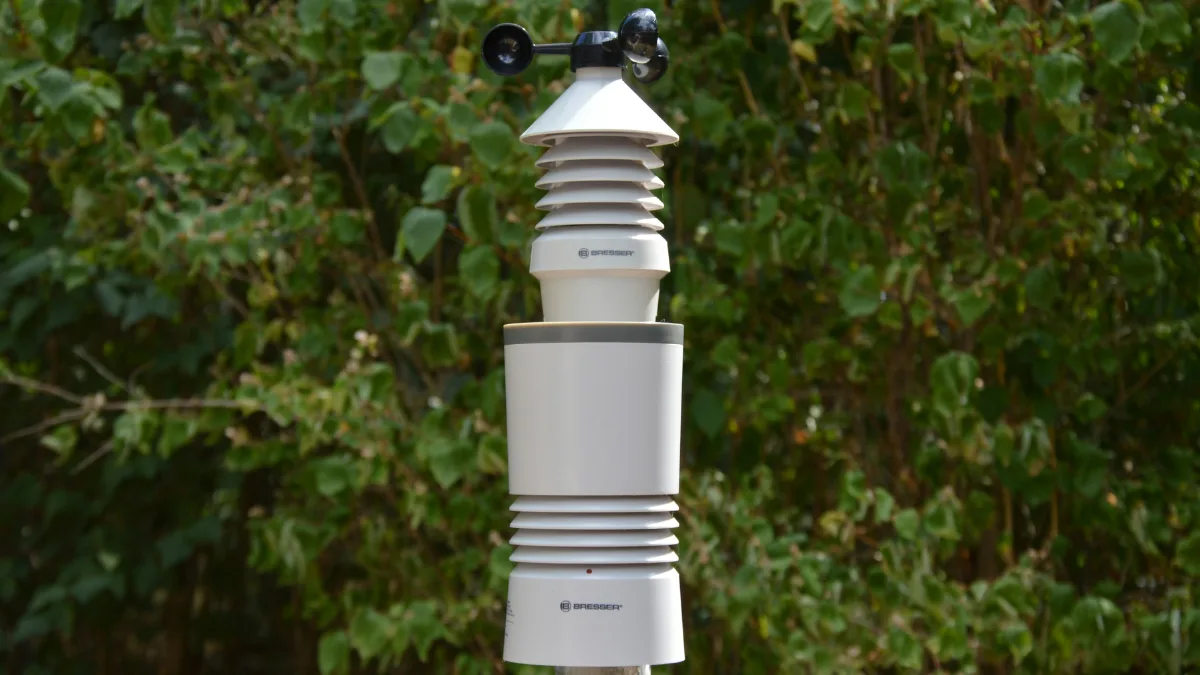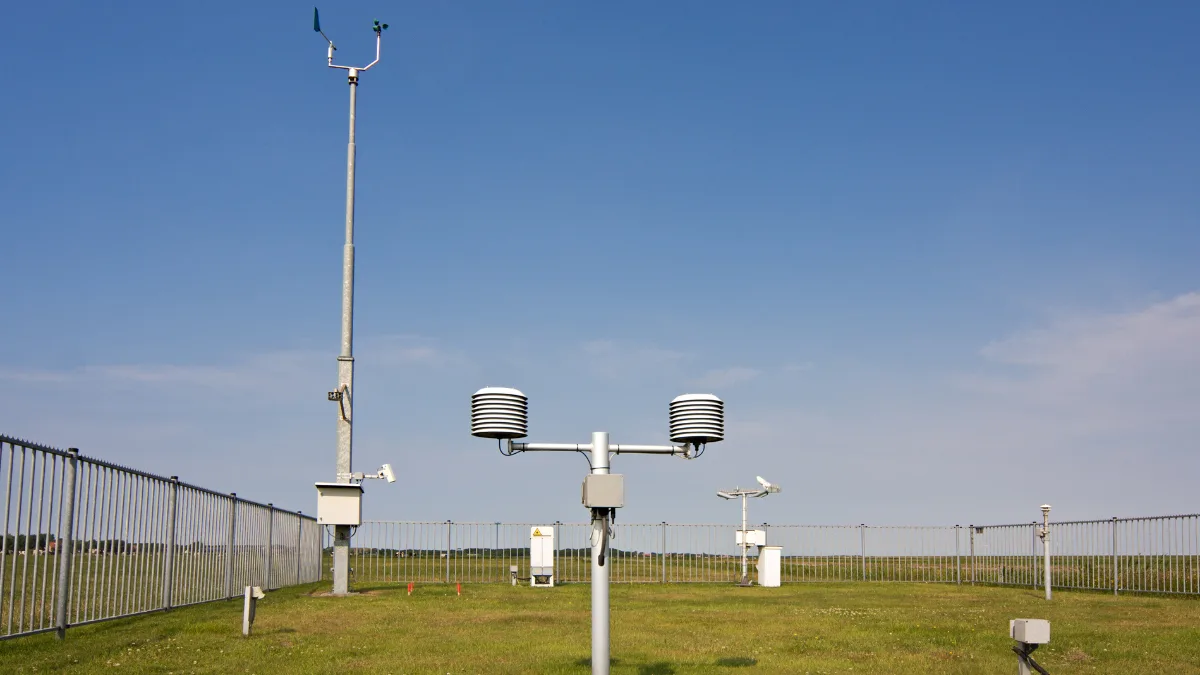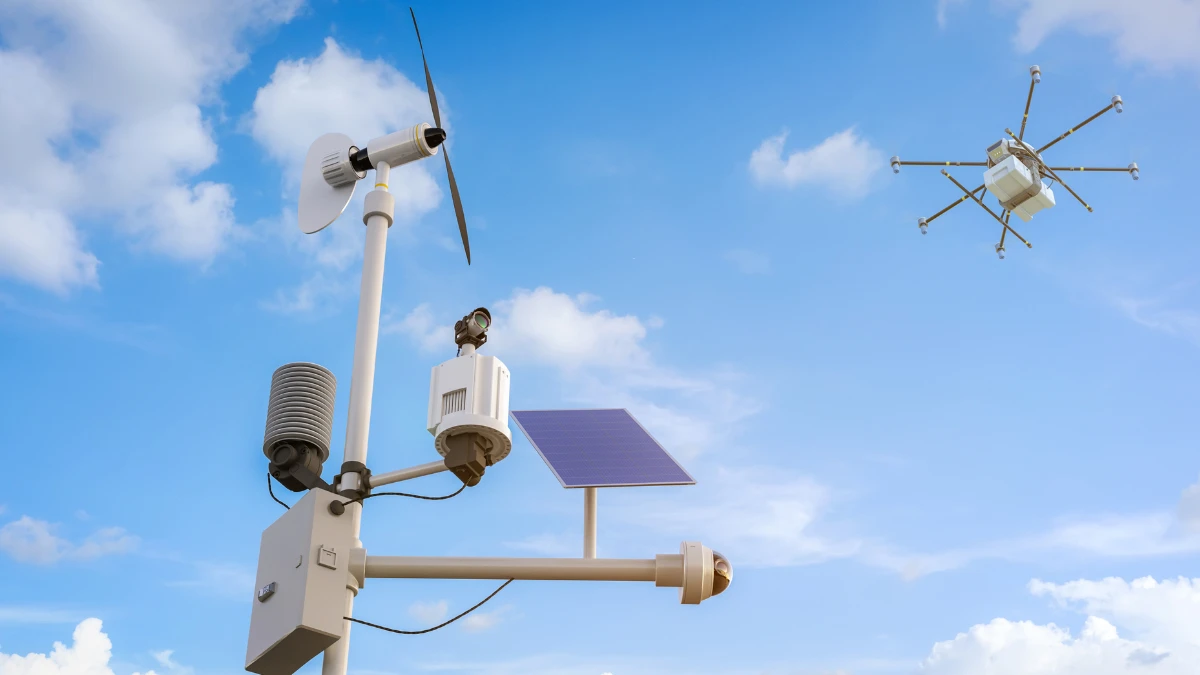Weather changes of course affect various human activities, tools that can help predict the weather will certainly help human productivity. That’s where the weather station innovation comes in answering the problem.
With weather stations, of course, predictions of weather changes to climate monitoring can be predicted so that all forms of weather changes can be anticipated.
Are you familiar with weather stations? This article will review the device from its definition, how it works, and its function, to its regulations in Indonesia.
What is a Weather Station?

A Weather Sensor Tool or Weather Station is a station that can detect the weather either on land or at sea. This device or system is used to measure and record various weather and atmospheric parameters automatically.
This tool serves to collect data such as temperature, humidity, air pressure, wind speed and direction, and rainfall, to provide information about weather conditions in an area.
How it Works
Weather Station works by detecting changes in temperature, temperature, wind, and light intensity emitted by the sun, this tool can also measure the humidity level in the environment. Here’s how the device works in more detail:
- Sensors detect changes: This tool will detect the slightest change in temperature, temperature, wind, and light intensity emitted by the sun.
- Sensor records automatically: The detected weather changes are automatically recorded.
- The results are sent to a data logger: The recorded weather changes are then transmitted to a data logger with a microprocessor to store the processed data into a “log” file.
- Data results are displayed: This log file can be converted into text or graphical form which will be displayed on the web or a special gadget connected to the device.
The Functions

The functions of weather stations include weather data collection to climate monitoring. Here are some of the main functions of the station:
1. Weather data collection
One of the functions of this device is to collect weather data. It uses various sensors to measure weather parameters such as temperature, humidity, air pressure, wind direction and speed, rainfall, and solar radiation.
2. Weather forecast
Another function of a weather station is to forecast the weather. The data collected by the sensors of this tool can be used to predict the weather in the future.
3. Climate monitoring
Weather stations also have a function in climate monitoring. Long-term climate changes and weather trends can be studied with this tool, so that it can anticipate changes that occur.
4. Support for human activities
Accurate weather data from weather stations are very useful in various human activities, such as agriculture (irrigation, planting), transportation (determining travel routes), and disaster mitigation (early warning).
5. Scientific research
Weather stations have another function that can be used in scientific research. This tool is widely used in scientific research related to weather, climate, and various atmospheric phenomena that occur.
The Regulations in Indonesia

The weather station uses communication technologies such as LoRaWAN that operate within a specific frequency spectrum. In Indonesia, any LoRaWAN-based wireless device is required to have DJID (Directorate General of Digital Infrastructure) under the Ministry of Communication and Digital (KOMDIGI).
Weather station regulations are based on KEPMEN No. 5 Tahun 2024, which requires all LoRaWAN-based devices to meet specific technical standards before being sold in the country.
The DJID certification ensures that the product meets government safety and quality regulations and does not interfere with other communication devices. The certification process involves technical testing, such as frequency adjustments, safety checks, and compatibility with the surrounding environment.
Once the tests are completed, products that pass are listed in a Test Result Report, which confirms that the product is safe and ready for sale in Indonesia. This report reassures customers that the product meets technical standards and is secure.
For companies wanting to sell weather stations in Indonesia, our type approval services are available to assist with this process. This service includes preparing technical and legal documents, conducting required testing, ensuring compliance with regulations, helping companies streamline the certification process, and giving consumers confidence in certified products. [UN]

